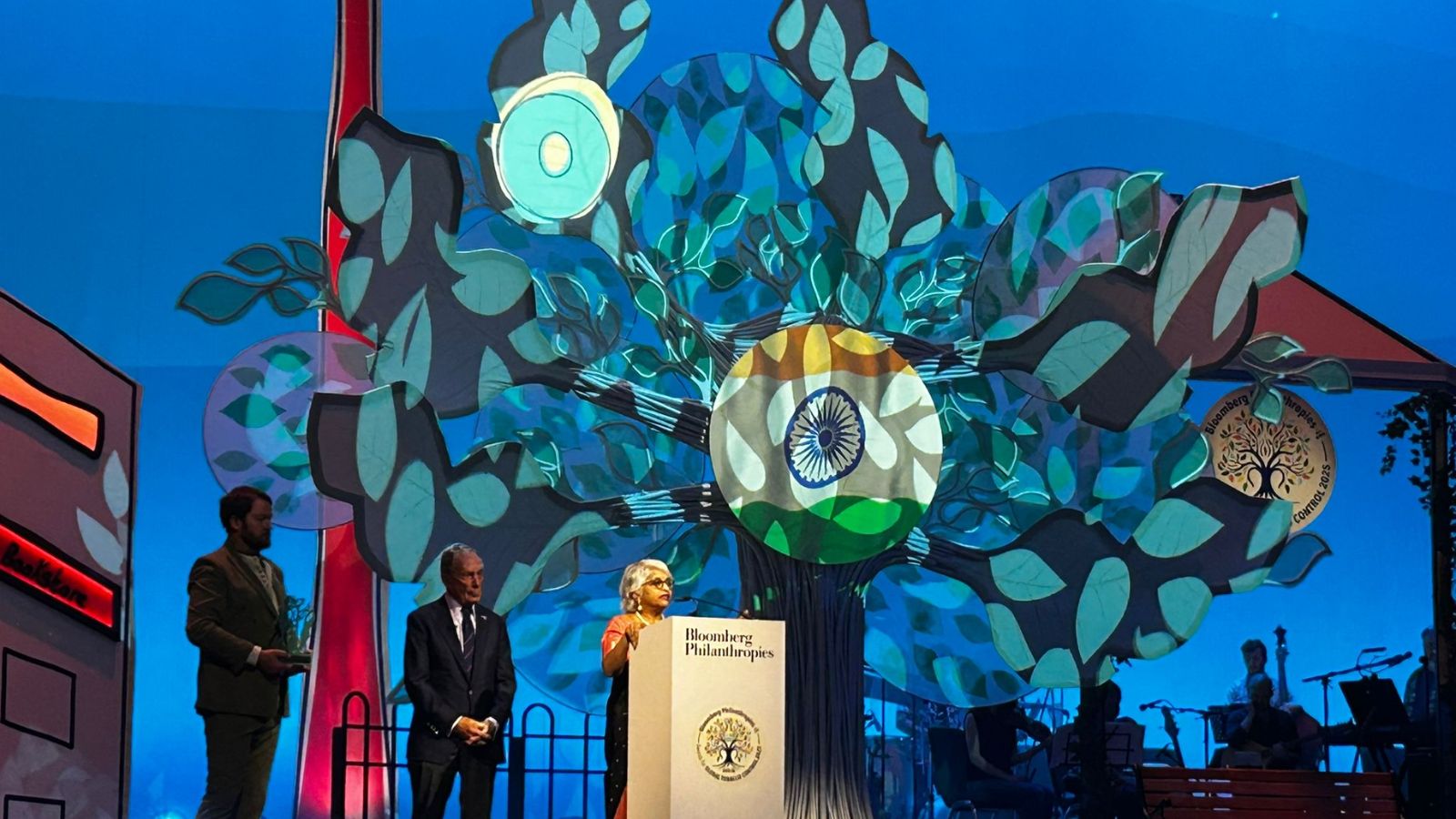India has been recognised among six countries with the 2025 Bloomberg Philanthropies Award for Global Tobacco Control, for its significant achievements in promoting tobacco cessation. The award was presented to the National Tobacco Control Cell, under the Ministry of Health and Family Welfare, at the World Conference on Tobacco Control held in Dublin, Ireland.
Recognition under the WHO MPOWER Framework:
- India received the award in the ‘O’ category of the WHO’s MPOWER policy package, which stands for “Offer help to quit tobacco use.” The MPOWER package is a set of six evidence-based tobacco control measures launched by the World Health Organization (WHO) in 2008, as part of the implementation of the Framework Convention on Tobacco Control (FCTC).
- The recognition underscores India’s progress in expanding accessible cessation services, integrating tobacco control into the broader public health system, and promoting behavioural change through a combination of infrastructure, outreach, and policy.
Key Tobacco Cessation Measures in India:
India’s tobacco control efforts are spearheaded through the National Tobacco Control Programme (NTCP). Major initiatives include:
- A national toll-free quitline (1800-11-2356) handling approximately 50,000 calls per month.
- Four operational quitline centres:
- NIMHANS (Bengaluru)
- Vallabhbhai Patel Chest Institute (New Delhi)
- Tata Memorial Centre (Mumbai)
- Dr B. Borooah Cancer Institute (Guwahati)
- Free cessation support services at multiple healthcare levels:
- 675 district hospitals
- 302 dental institutions
- 361 medical institutions
- Services integrated across 607 NCD clinics, oral health clinics, and Ayushman Arogya Mandirs.
- Public awareness campaigns and training for healthcare professionals to strengthen tobacco cessation as part of routine healthcare.
Tobacco Use Trends and India’s Performance:
The WHO Global Tobacco Epidemic 2025 report, launched alongside the award ceremony, highlights a global decline in tobacco use. Between 2007 and 2023, global daily smoking prevalence fell from 22.3% to 16.4%, representing a 26% relative reduction.
In India, adult daily smoking prevalence in 2023 stood at 7%, reflecting a downward trend. However, experts have noted that smokeless tobacco use remains a significant public health challenge, particularly in rural areas and among vulnerable groups.
Global and Regional Context:
Alongside India, countries including Mauritius, Mexico, Montenegro, the Philippines, and Ukraine were also recognised for their tobacco control progress. These awards celebrate governments and civil society actors making measurable progress in implementing WHO-recommended best practices.
Conclusion
India’s recognition at the global stage highlights its growing commitment to addressing tobacco use through a public health lens. With the NTCP now deeply embedded into the healthcare delivery system, India is positioned to make further progress in tobacco control, especially through increased outreach, policy enforcement, and support for cessation.
This award reinforces the importance of sustained government action, international cooperation, and evidence-based policy in reducing the tobacco burden and achieving long-term public health goals.







